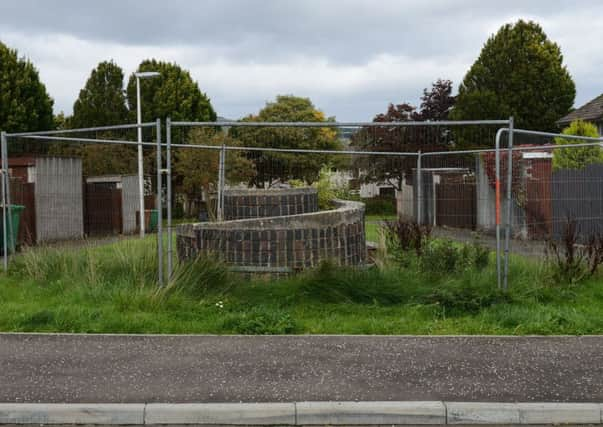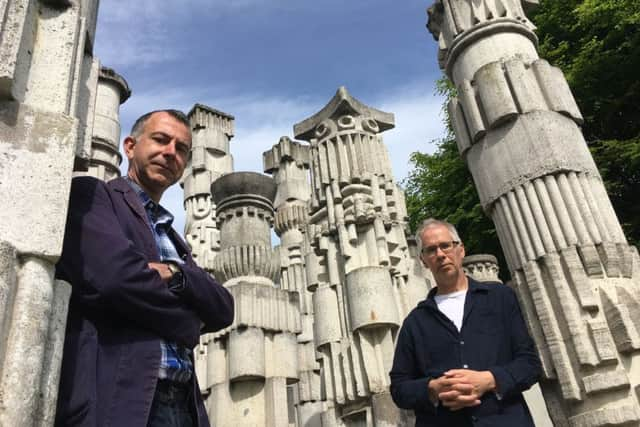Council accused of 'cultural vandalism' after destroying historic sculpture


A brick spiral, one of two created by Glenrothes’ first appointed town artist David Harding in 1972, which was situated on land adjacent to Muirfield Drive in Newcastle, was removed by council workmen two weeks ago and destroyed.
The work had been fenced off for the past three years after being damaged during the construction of new houses.
You might also be interested in:


Advertisement
Hide AdAdvertisement
Hide AdCommenting on the decision to remove the art work, Lesley-Jane Robertson, lead officer – area housing management, said: “Roundell has been fenced off for a few years and was unable to be repaired.
“Following a request made from the chair of Glenrothes West Tenants and Residents Association on behalf of the local community, the decision to remove the Roundell was made by councillors at their recent ward 13 meeting.”
However, the residents’ group has moved to distance itself from the controversy claiming it alerted the council in a bid to make the sculpture safe.
“At no time did we indicate to the council that we wanted the historic sculpture removed or destroyed,” said Lesley Bain, chairman.
“We were only acting on the information from residents that children had been able to get past the safety fencing and were playing on the damaged spiral and that we wanted the council to make it safe.
“We are as dismayed as everyone else that a long-standing and much enjoyed example of the town’s public art has now been removed for good.”
Ironically, the removal comes as the town plays host to an exhibition celebrating the unique collection of public art and sculpture and the 50th anniversary of Mr Harding’s appointment as the first town artist in the UK.
With a growing appreciation of the town’s public art collection and its cultural significance, Linda Ballingall, chairman of Glenrothes Heritage Centre, said the move was an act of “cultural vandalism” and “ill judged”.
Advertisement
Hide AdAdvertisement
Hide AdShe said: “It’s most disappointing. The council needs to re-evaluate its stance on the town’s art, not just take the easy option to remove the problem.”
Jeremy Howard from St Andrews University, who along with colleague Andrew Demetrius, were responsible of the successful town art exhibition which took place in October, said he has also been left disappointed by the council’s actions.
He said: “Of course I don’t know how decisions to demolish or maintain are made, but I would have thought that such a work would have provided a great opportunity for potential construction-work apprentices to learn a trade; and that consideration should be given to how the artwork belongs to something bigger than itself and its particular location, ie, to the wider community and the uniquely imaginative sense of identity-shaping that makes Glenrothes a very special place.
“I would think, and many others I have spoken to are of like mind, not least David Harding, who has suggested the idea himself, that a preservation group should be formed, and that its role should be to press for sensitive care and timely maintenance of the town’s works by those in charge.
“Consultation should be paramount and restoration shouldn’t be piecemeal or partial. It should be regarded as an opportunity. We named our exhibition ‘The Enduring Town Art of Glenrothes’.
“Unfortunately many visitors pointed out that the case of the vanished Brick Spiral is far from isolated.
“My hope would be that officials, townsfolk and advisors could work together to ensure that the material and integrity of the works really endures.”